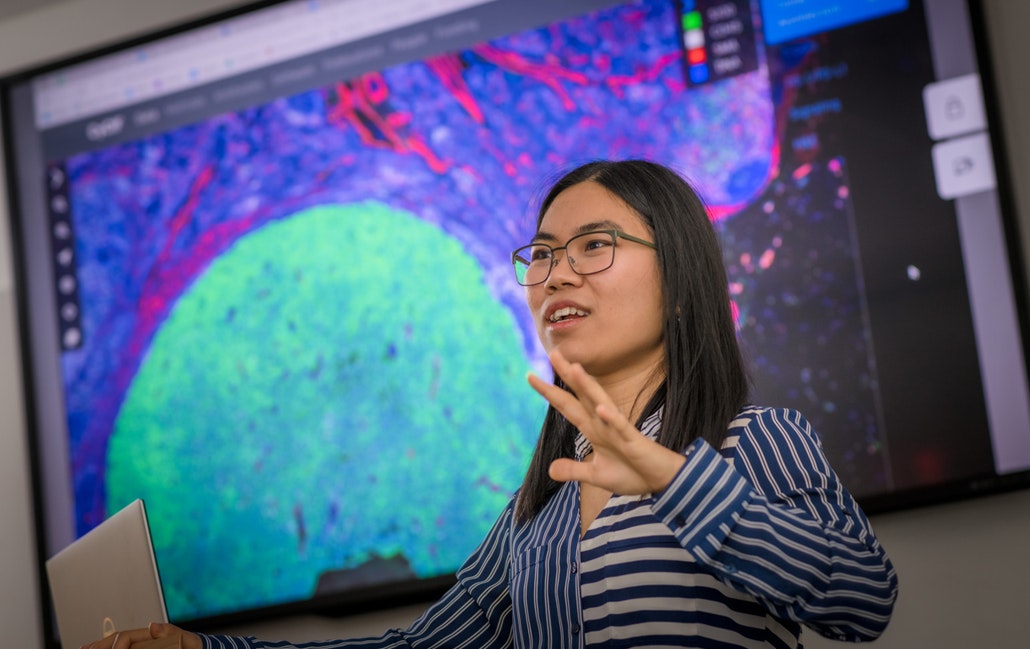Vision
The promise of SPATIAL BIOLOGY
Spatial biology provides greater insight into the complex biological interactions occurring within tissues. It integrates data on the physical arrangement of cells within tissues with information about the proteins and other biomolecules within these cells, including DNA modifications and RNA expression. This level of detail is not possible with conventional tissue microscopy (histology), which is widely used in research and diagnostic settings, or with dissociative single-cell sequencing. Instead, spatial biology requires a range of new technologies and computational methods based on machine learning. The development of tissue atlases also depends heavily on the expertise of practicing pathologists who use histology daily to diagnose and stage disease.

The HTA team is committed to using the advances in high-plex tissue profiling to improve disease diagnosis and management for patients. Ultimately, we aim to detect diseases, such as cancer, much earlier and enable its eradication; for more advanced diseases, we aim to develop new ways of matching individual patients to the therapies most likely to benefit them. Achieving these goals is more possible today than ever before - pathology in a clinical setting is undergoing a transition from conventional to fully digital methods. We expect the scientific advances made with tissue atlases to directly impact digital pathology practice.
DEVELOPING THE HTA
The HTA is based on research performed in the Laboratory of Systems Pharmacology (LSP) at Harvard Medical School and the laboratories of its international collaborators. Much of our work focuses on developing experimental and computational methods for using highly multiplexed tissue imaging, spatial transcriptomics, imaging mass spectrometry, and other technologies to transform spatial data into precise molecular and morphological information on cell types and states. Exemplary multi-dimensional datasets on melanoma and colorectal cancer have started to appear and will continue to develop over the coming years.
HTA Atlases address different biological problems and types of disease, from tuberculosis to cancer, but they share a common set of technical, software, and educational resources available on this website. HTA resources are the work of molecular and systems biologists, clinicians, computer scientists, and software engineers, including graduate students and postdoctoral fellows. With very rare exceptions, all data and software generated by HTA projects are freely available under permissive Creative Commons or open-source software licenses.
The HTA is supported primarily by federal and foundation grants, but we welcome participation by commercial instrument and reagent companies interested in our work. We also welcome collaborations with biotechnology and pharmaceutical companies interested in applying spatial profiling to IND-enabling studies and clinical trials. Positions are available for students, postdocs, and research staff under the supervision of faculty with diverse skills and interests.

NAVIGATING THE SITE
Explore our site to discover how the Harvard Tissue Atlas is advancing spatial biology. Learn about the cutting-edge methods behind our atlases through our webinar-based curriculum at the LEARN tab. Explore our ATLASES, read our PUBLICATIONS, and learn ABOUT THE DATA. For a comprehensive look at our data, head to EXPLORE IMAGE DATA. Check out the JOIN US page for available positions and collaboration opportunities.